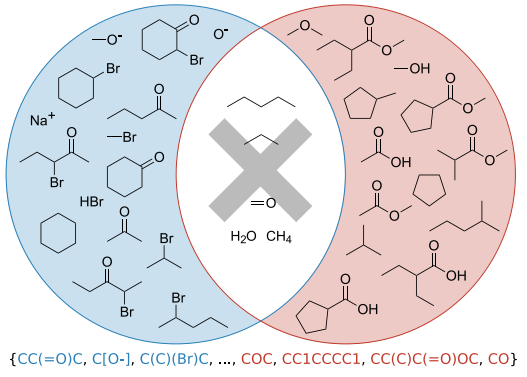Reaction Classification and Yield Prediction using the Differential Reaction Fingerprint DRFP

Our paper Reaction Classification and Yield Prediction using the Differential Reaction Fingerprint DRFP is now published online in RSC Digital Discovery! The work is about the development of differential reaction fingerprint DRFP and how it performs compared to other fingerprints, such as the DFT-based fingerprints and the deep learning-based fingerprints.
Abstract:
Predicting the nature and outcome of reactions using computational methods is a crucial tool to accelerate chemical research. The recent application of deep learning-based learned fingerprints to reaction classification and reaction yield prediction has shown an impressive increase in performance compared to previous methods such as DFT- and structure-based fingerprints. However, learned fingerprints require large training data sets, are inherently biased, and are based on complex deep learning architectures. Here we present the differential reaction fingerprint DRFP. The DRFP algorithm takes a reaction SMILES as an input and creates a binary fingerprint based on the symmetric difference of two sets containing the circular molecular n-grams generated from the molecules listed left and right from the reaction arrow, respectively, without the need for distinguishing between reactants and reagents. We show that DRFP performs better than DFT-based fingerprints in reaction yield prediction and other structure-based fingerprints in reaction classification, reaching the performance of state-of-the-art learned fingerprints in both tasks while being data-independent.
Author(s): Daniel Probst, Philippe Schwaller, and Jean-Louis Reymond